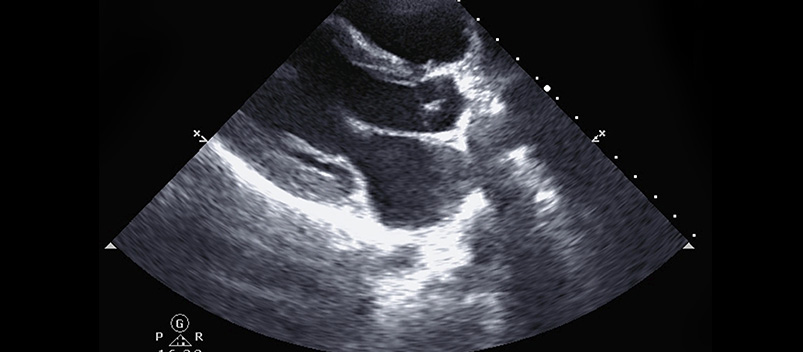Echocardiogram
An echocardiogram (often called “echo”) provides ultrasound imaging of the heart to examine its size and strength, as well as how well it is functioning. This procedure is often combined with Doppler ultrasound and color Doppler to evaluate blood flow across the heart’s valves. An echocardiogram is non-invasive, has no known side effects and may be used to provide diagnostic assessment of the heart’s condition.
The Journal of the American College of Cardiology (2007) has established appropriate criteria for cardiovascular imaging. These criteria include the following generally acceptable and reasonable indications, amongst others:
- Symptoms potentially due to suspected cardiac etiology, including but not limited to dyspnea, shortness of breath, palpitations, lightheadedness, syncope, TIA, cerebrovascular events
- Prior testing that is concerning for heart disease (chest x-ray, baseline stress echo, ECG, serum BNP elevation)
- Known or suspected congenital heart disease, arrhythmias, aortic disease
- Pulmonary hypertension
- Hypotension or hemodynamic instability
- Heart murmur
- Valve function evaluation, stenosis, regurgitation, infective encarditis, mitral valve prolapse
- Evaluation of intra- and extra-cardiac structures and chambers
- LV function evaluation
- Acute myocardial infarction
- Coronary insufficiency
- Cardiotoxic agent monitoring
- Pericardial disease detection
Contact Us today!
If you are interested in learning more about our services or would like to schedule an appointment, please contact us or call us at 516.546.9200


